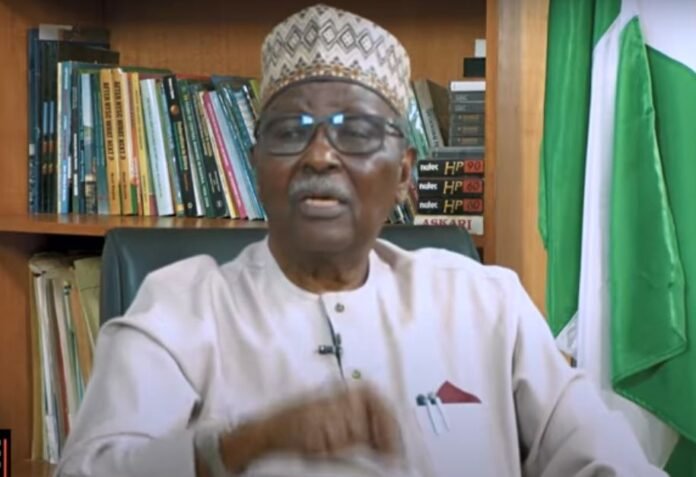Former Nigerian Head of State, General Yakubu Gowon, has revealed that the collapse of the Aburi Accord sparked the Nigerian Civil War.
Gowon was taking questions in an interview with Arise TV’s anchorman Charles Aniagolu recently.
The General said the Aburi agreement failed because Eastern Region leader, Late General Chukwuemeka Odumegwu Ojukwu, demanded that regional governors control the military in their areas.
He explained that both sides had agreed in Aburi, Ghana, to divide Nigeria into military zones. But Ojukwu later insisted each governor must command the army in his zone.
“Say you have a military zone in the north, it would be commanded by the governor… in the east, it would be commanded by… him,” Gowon said.
He added that this was not what the federal side agreed to.
“We just went there to resolve a problem at home. That was my understanding. But that is not his understanding,” he stated.
Gowon said he was seriously ill after the meeting and could not respond quickly when Ojukwu went public with his own version of the agreement.
“I was having serious attack of kind of fever… and I could not make a decision,” he said.
He described Ojukwu’s public announcement as misleading and said a follow-up meeting in Benin was planned to fix things. But Ojukwu didn’t attend.
According to Gowon, this refusal killed any hope of peace and led directly to the war in July 1967.
I Didn’t Know Ironsi Would Be Killed – Gowon
Gowon said he had no knowledge of the July 1966 counter-coup that killed Nigeria’s first military Head of State, General Johnson Aguiyi-Ironsi, and Governor Adekunle Fajuyi.
“I didn’t know about the July counter‑coup ahead of time,” Gowon said.
He recalled sensing danger and tried to warn Ironsi.
“When I began to sense something might be wrong, I tried to warn General Ironsi, but… it was too late,” he said.
He said the killings were a deep shock to him.
Gowon was made Head of State shortly afterward, even though he had no political training.
“I was not trained to rule. I had to rise to the occasion,” he said.
I Created States to End Ethnic Tensions – Gowon
The wartime ruler said the creation of 12 states in 1967 was not his personal idea but came from people demanding protection for minority groups.
He explained that the earlier four-region structure was seen as unfair.
“It was a response to people’s wishes after the crisis of 1966,” he said.
He also spoke about the killings of easterners in the north after the 1966 coup.
Gowon said he worked with community leaders and military officers to stop the violence.
He told the army, “It was not their role to allow civilians to be harmed.”
He said Nigeria survived the crisis not because of him, but because Nigerians decided to stick together.
I Knew About 1975 Coup But Didn’t Stop It – Gowon
Gowon revealed that he was aware of the July 1975 coup that removed him from office.
He said he was told in advance while attending an OAU summit in Kampala, Uganda.
“I was told it was going to happen by a special group… I wasn’t surprised,” he said.
According to Gowon, two of the coup plotters were known to him.
He said he chose not to act because he wanted to promote African unity at the summit.
“I went to Kampala to show Africa that Nigeria is a leader,” he said.
He accepted the outcome of the coup and said he held no grudges.
‘Nigeria Is Thriving 55 Years After Civil War’ – Gowon
Looking back 55 years after the war, Gowon said Nigeria has made great progress.
“Isn’t Nigeria thriving today? Have we not gone beyond what we were 55 years ago?” he asked.
He said Nigeria is not perfect but has grown stronger.
“We have survived as a country, improving at every stage,” Gowon noted.
He added that the Eastern Region, where the war was most felt, is now doing better.
“There is great progress happening in the East… Things are improving,” he said.
He explained that oil money was used after the war to rebuild, under what he called the “three Rs”: reconstruction, rehabilitation and reintegration.
“We restored damaged schools, hospitals and infrastructure in the East and other affected parts of the country,” he said.
Gowon also spoke on the 1975 cement scandal, saying it was a result of global shortages, not corruption.
When asked how he wants to be remembered, he said: “I want to be remembered as someone who loves his country, Nigeria… who prays that… if I cannot fight it, at least I can pray for Nigeria.”
He added jokingly that even if the U.S. places a travel ban on him, “Let me make Nigeria stronger than America so that I can stay here.”
Below is the full video of the interview.
Follow us @JolibaLive for more updates. Share, Comment and Let Us Know Your Thoughts.







